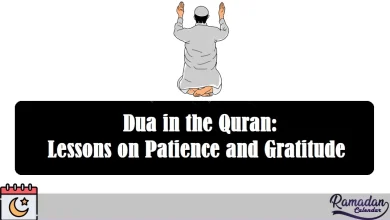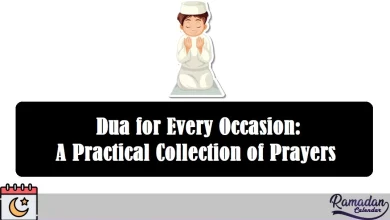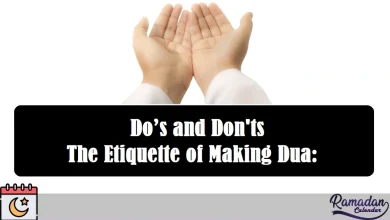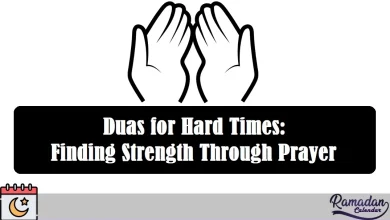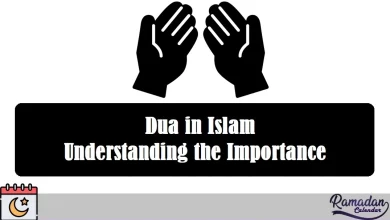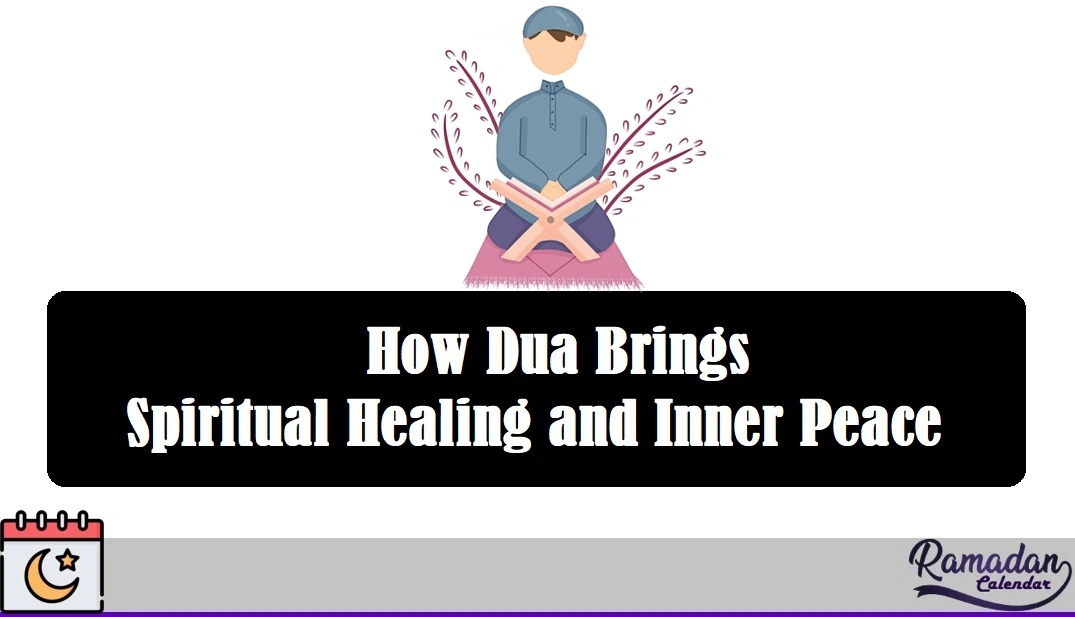
How Dua Brings Spiritual Healing and Inner Peace: Life is a journey filled with moments of joy and sorrow, success and trials. In the face of these ebbs and flows, many seek solace, strength, and meaning. Dua (supplication) in Islam is a profound tool for spiritual healing and attaining inner peace. Beyond its spiritual essence, dua fosters a connection with the Divine, provides emotional relief, and serves as a means of self-reflection and empowerment. This article explores how dua can transform your soul, soothe your heart, and illuminate your path toward tranquility.
The Healing Power of Connection with Allah
Dua is not merely an act of asking for what we need; it is a conversation with Allah, the Most Merciful. This divine dialogue is rooted in the believer’s trust in Allah’s wisdom and mercy. The Quran emphasizes the closeness of Allah:
“And when My servants ask you concerning Me, indeed I am near. I respond to the invocation of the supplicant when he calls upon Me.” (Surah Al-Baqarah, 2:186)
This verse serves as a reminder that Allah is always near, ready to listen and respond. The act of reaching out to Him in dua creates a sense of closeness and reassurance, which is inherently healing. In times of hardship, this connection becomes a lifeline, reminding us that we are never alone in our struggles.
Emotional Release Through Dua
In a world that often suppresses emotional expression, dua provides a safe and sacred outlet for releasing feelings of fear, sorrow, and anxiety. Pouring one’s heart out to Allah without judgment is both liberating and therapeutic. The Quran presents the example of Prophet Yaqub (Jacob, peace be upon him), who, despite immense grief, turned to Allah:
“I only complain of my suffering and my grief to Allah, and I know from Allah that which you do not know.” (Surah Yusuf, 12:86)
This act of expressing vulnerability in dua helps to lighten the emotional burden. It allows believers to process their emotions in a way that fosters healing and growth, knowing that their pain is seen and understood by the One who is Most Compassionate.
Spiritual Healing Through Trust in Allah’s Plan
One of the core elements of dua is the recognition of Allah’s sovereignty over all matters. This realization instills a sense of trust and surrender, essential for spiritual healing. The act of making dua is, in itself, an acknowledgment that we are dependent on Allah and that His plan is always better than ours.
Consider the example of Prophet Musa (Moses, peace be upon him) when he fled Egypt and found himself alone and in need. His heartfelt supplication was simple yet profound:
“My Lord, indeed I am in need of whatever good You would send down to me.” (Surah Al-Qasas, 28:24)
This dua reflects complete reliance on Allah and acceptance of His decree. When we adopt a similar mindset, trusting in Allah’s wisdom even in adversity, it brings unparalleled peace to the heart.
The Role of Gratitude in Dua
Gratitude is a powerful antidote to negative emotions. Dua is not limited to asking for help; it is also an opportunity to thank Allah for His countless blessings. Gratitude in dua shifts our focus from what we lack to what we have, fostering a positive outlook and contentment.
The Quran highlights this dynamic:
“If you are grateful, I will surely increase you [in favor].” (Surah Ibrahim, 14:7)
When we incorporate gratitude into our duas, it nurtures a sense of abundance and shifts our mindset toward optimism. This practice not only deepens our relationship with Allah but also contributes to emotional resilience and spiritual fulfillment.
Dua as a Means of Self-Reflection
The process of making dua often involves introspection. It requires us to identify our needs, acknowledge our shortcomings, and articulate our desires. This self-awareness is a key component of personal growth and spiritual healing. Dua prompts us to evaluate our intentions and align our goals with our faith.
For instance, asking Allah for forgiveness (“Astaghfirullah”) encourages us to reflect on our actions and strive for self-improvement. Similarly, seeking guidance (“Allahumma ihdina”) helps us realign our choices with the path of righteousness. This ongoing self-reflection fosters a sense of purpose and clarity in life.
Achieving Inner Peace Through Consistency in Dua
Consistency in dua is transformative. Regularly turning to Allah reinforces the believer’s sense of reliance and strengthens their faith. The Prophet Muhammad (peace be upon him) emphasized the importance of persistence in supplication:
“Your Lord is generous and shy. If His servant raises his hands to Him, He becomes shy to return them empty.” (Tirmidhi)
This assurance inspires hope and patience. The more consistent we are in our supplications, the more we feel Allah’s presence in our lives. This ongoing connection brings a deep sense of calm, knowing that we are under the care of the Almighty.
Practical Tips for Effective Dua
Begin with Praise and Gratitude: Start your dua by glorifying Allah and thanking Him for His blessings.
- Be Sincere and Humble: Speak to Allah with a heart full of sincerity and humility.
- Use the Names of Allah: Invoke Allah using His beautiful names that align with your request, such as Al-Rahman (The Most Merciful) or Al-Hakeem (The All-Wise).
- Make Dua Consistently: Turn to Allah in both ease and hardship.
- Trust in Allah’s Response: Believe that Allah will answer your dua in the way that is best for you.
Conclusion
Dua is a powerful means of spiritual healing and achieving inner peace. It connects us to Allah, provides emotional relief, nurtures gratitude, and fosters self-awareness. By making dua a consistent practice, we not only draw closer to our Creator but also cultivate a heart that is content, resilient, and spiritually enriched. No matter the circumstance, never underestimate the transformative power of dua—it is the key to healing, peace, and a profound relationship with Allah.
